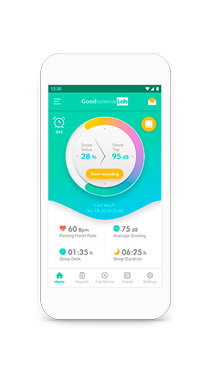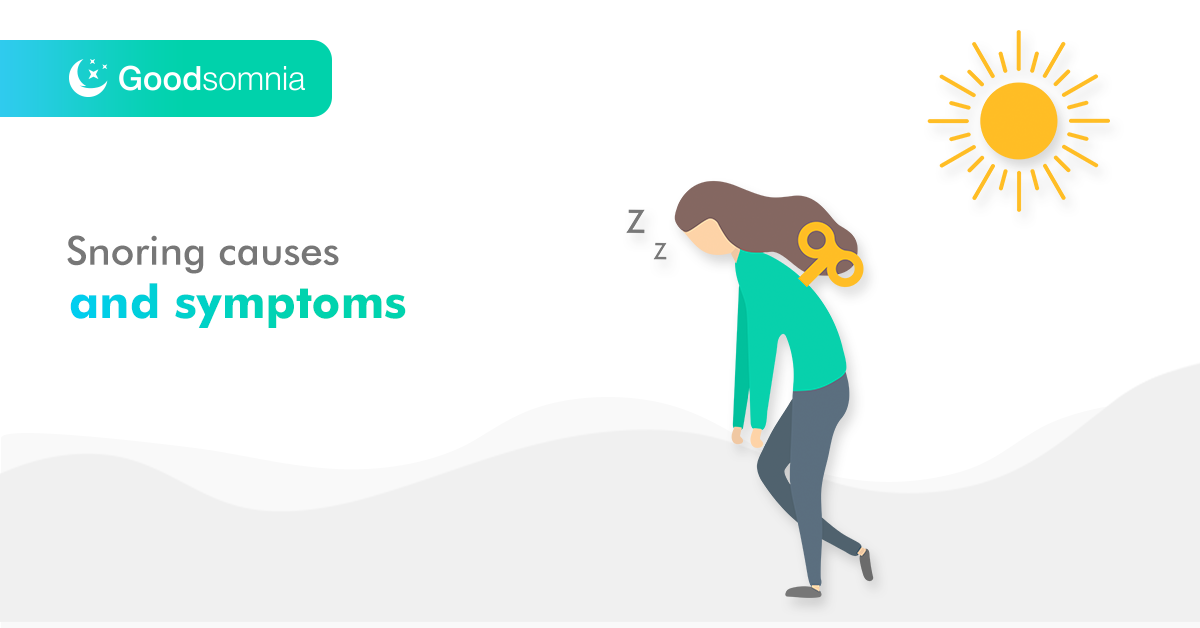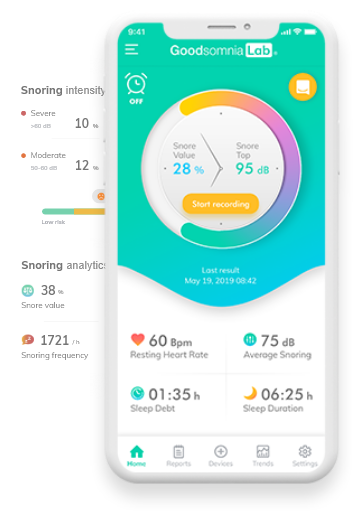Snoring can be as annoying as squeaking bedsprings or flies buzzing. Nobody likes them. But snoring is not a habit; it is a sleep disorder that demands treatment. Before worrying, you can decrease the possibility of snoring by following day to day rules. What’s important is to know the cause for snoring and how to detect the first symptoms. Being aware is good for your health and the wellbeing of those around you.
What are the top 3 snoring causes?
The first, most apparent is snoring caused by the throat. What’s behind this? You snore when the airflow makes the tissues in the back of your throat vibrate. That’s because your muscles are relaxed or the soft palate is low and thick. The airway is narrowed and you snore. The other could be a long uvula: a small piece of tissue hanging from your soft palate, but surgery can fix that.
The second cause you can control is snoring because of weight. Snoring is the most common symptom of obstructive sleep apnea, occurring in 70%-95% of patients. About 70% of people with sleep apnea are obese and 40% of obese experience sleep apnea. Never get a 17-inch neck as this can trigger sleep disorder!
Lastly, snoring caused by stress. Depression, fatigue, and apathy never lead to strong health and restful sleep. Usually, depression goes with drinking, smoking, overeating, irregular sleep.
All these snoring causes are connected and can affect each other.
Snoring symptoms you can notice on your own
To catch the first symptoms you just need to pay attention and notice these:
- Volume matters. Loud and heavy snoring — symptoms can lead to sleep apnea. Notice it? Then go and take a sleep test.
- Sleeping sound matters. Harsh or hoarse noises made during sleep are the snoring breathing sounds you need to detect. If your bed partner says you produce such sounds, see a doctor.
- Sleeping time matters. It’s known the hormone melatonin that keeps us calm is released into the blood only when the sun goes down. That’s why we have better quality sleep at night. Lack of energy during the day, snoring, daytime sleepiness are triggers of irregular sleep that can cause a disorder.
How snoring affects your body
Snoring effects are tricky. Hidden at first sight, they can turn problematic. Often people who snore have high blood pressure, resulting in an enlarged heart. Snoring can cause a heart attack. It’s usually the first stage of sleep apnea and the possibility of a heart attack or arrhythmia with sleep apnea is 100 times higher.
Snoring cause and effect can cause chronic headache. The reason: snoring leads to poor sleep, the level of oxygen and carbon dioxide in the bloodstream changes and you feel drowsy during the day.
Snoring effects on health are huge. They affect every part of the body but we can lessen the dangers by changing our habits by monitoring snoring symptoms of sleep apnea.














